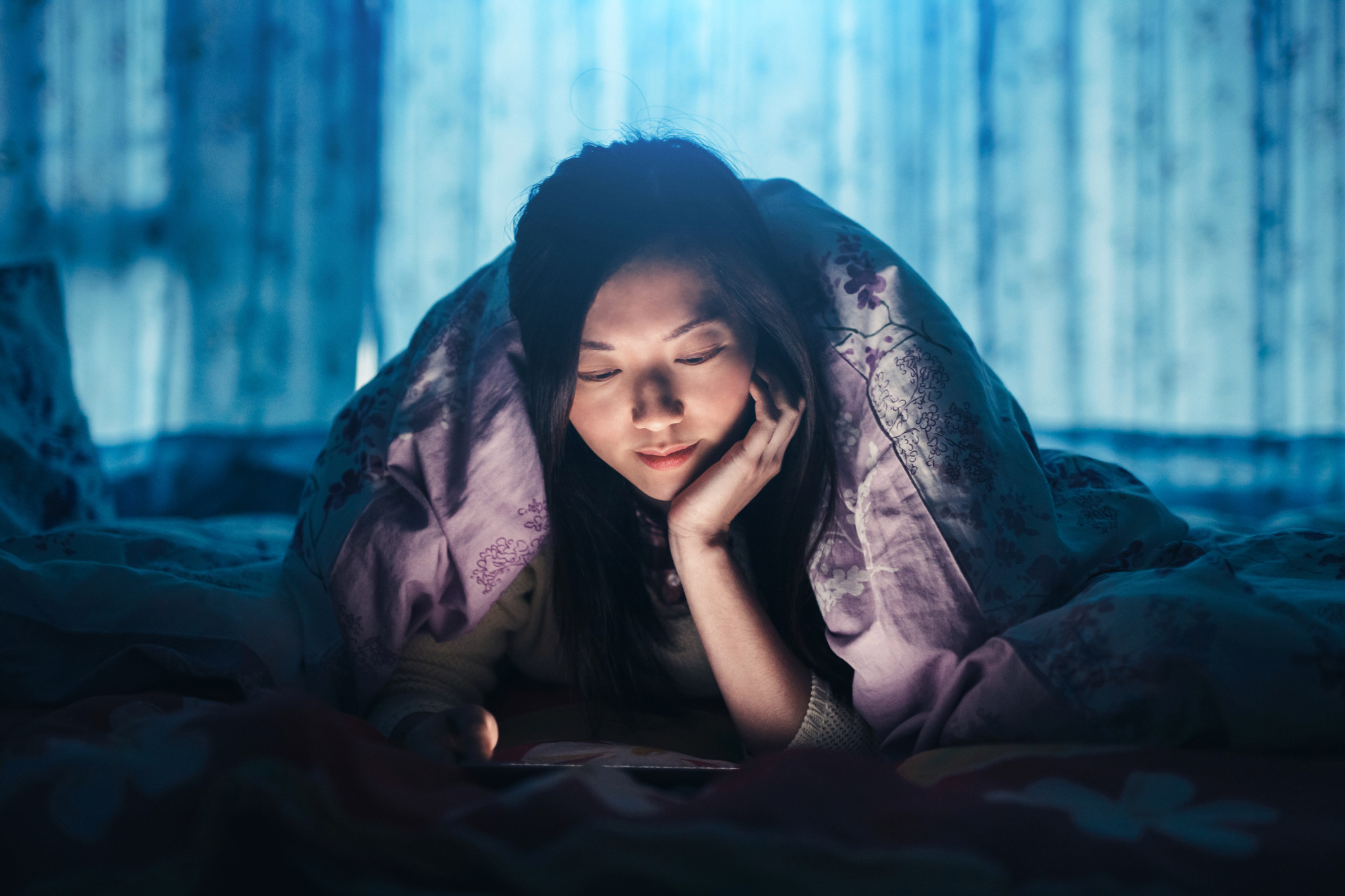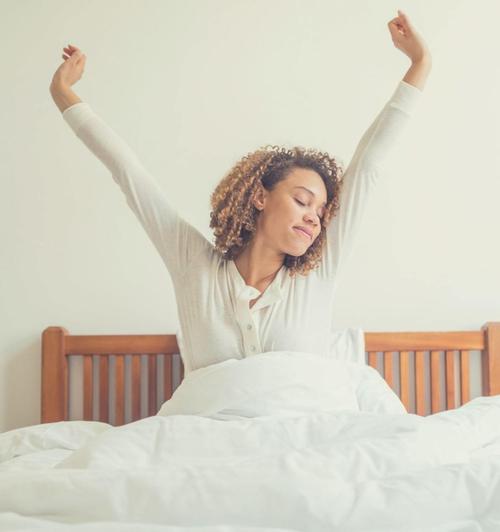It is always said that staying up late is harmful, but do you know how harmful it is? Some people may say that staying up all night is a common occurrence and there is no discomfort afterward, however, more people, once they start staying up all night, will experience various symptoms, which are actually the body protesting:

Dry, red eyes and reduced vision
When you stay up late, you will overload your eyes, which can cause pain, dryness, swelling and dry eye problems. W10295370a Strain on the eye muscles can also lead to temporary loss of vision.
Skin deterioration and oedema
Staying up late doesn’t just bring dark circles under the eyes, it can also cause dryness, poor elasticity, oedema, dullness, enlarged pores, acne and pimples.
Stomach and intestines become worse and stomach problems recur
Many people sleep after eating late at night, and the food they eat stays in their stomachs for a long time, making it easy for those without stomach problems to contract acute stomach ulcers, and for those with stomach problems to relapse. The gastrointestinal tract is not rested at night, which affects the stomach’s ability to repair and protect itself, making gastrointestinal function weaker.
Poor memory and poor mental performance
The sympathetic nerves of those who stay up late at night remain excited during the night and become fatigued during the day, resulting in dizziness, lack of energy, mental swelling and poor concentration.
Elevated blood pressure
When staying up late, people are in a state of prolonged stress and constantly secrete hormones such as adrenaline, which can cause abnormal blood vessel constriction. With prolonged lack of sleep, a person will feel nervous and anxious, which can easily trigger or aggravate high blood pressure.
Heartburn and rapid heartbeat
The symptoms of arrhythmia can easily appear after staying up late. Generally such symptoms are transient and will be relieved by rest, but if they occur continuously, then it is recommended to go to the cardiology department of the hospital.

Some people may read the above dangers and think it doesn’t matter, so let’s talk about two more questions that people ask most often.
Can staying up all night cause cancer?
Staying up late will not directly cause cancer, but staying up late for a long time will increase the risk of cancer!
Because staying up late can lead to disruption of endocrine hormone levels and abnormal cell metabolism, which affects the normal division of human cells and leads to cell mutation, increasing the risk of cancer. And as early as 2007, the World Health Organization already defined staying up late as a category 2A carcinogen, which is the same category as high-temperature fried food.
Can staying up late cause sudden death?
In light of the previous news of sudden death of celebrities, the topic of whether staying up late can cause sudden death has sparked another discussion.
It is true that staying up late is a trigger for sudden death in some people, but staying up late is not the root cause of sudden death; having cardiovascular disease is the main cause. The majority of people who die suddenly after staying up late die from sudden heart attacks. The reason for this is that staying up late leads to disturbance of the biological clock and sympathetic overexcitation, which makes the heart beat faster and causes ventricular tachycardia and ventricular fibrillation, resulting in sudden cardiac death. Other people die from strokes, which are caused by high blood pressure that ruptures blood vessels in the brain.
Of course, this does not mean that the average person who stays up late will not die suddenly, but staying up late can increase the risk of heart disease and therefore sudden death.
Here’s what else you should know about ‘sleeping late’
1.What time is it considered to stay up late?
There is no clear definition of this, but generally speaking, we consider staying up later than 11pm to be a late night. This is because people tend to get deep sleep between 0pm and 4pm at night, and normal adults generally fall asleep for 60 minutes before they enter their first deep sleep. Therefore, it is recommended to start bedtime preparations before 11pm.
However, some people may ask if going to bed at 10pm and getting up at 6pm every day is a very healthy work schedule. So what if you go to bed at 2pm and get up at 10pm every day?
Although it is the same 8 hours of sleep, it is really not good to sleep late. Previous studies have shown that people who sleep late are more likely to smoke and drink; also it is difficult for people who sleep late to ensure the same quality of sleep as those who go to bed early, and they are more likely to feel tired during the day, which I believe many people have similar experiences.
However, many people are unable to go to bed early due to work and other problems, so in Microlife’s opinion if you can ensure a sleep routine of going to bed at 2am and getting up at 10am every day, it is not a big problem. Compared to this problem, it is actually important to ensure sufficient sleep time and quality and to develop a certain sleep routine!

2.I can’t sleep at night, is it considered insomnia?
Insomnia is the most common type of sleep disorder and does not only refer to the inability to sleep at night. The main manifestations are:
● Prolonged sleep onset, usually more than 30 minutes.
Sleep maintenance disorder, with two or more awakenings during the night or early awakenings in the early hours of the morning.
● Decreased quality of sleep, with light sleep and excessive dreaming.
● Shortened sleep duration, usually less than 6 hours.
● Residual daytime effects: dizziness, lack of energy, drowsiness and fatigue the next day.
Depending on the duration of insomnia, it is also classified as.
● Transient insomnia: insomnia lasting between 1 and 6 days, often caused by a change in environmental factors, sleep can be restored after removing the disturbing factors or adapting to the new environment.
Short-term insomnia: insomnia usually lasts for 1 to 3 weeks, often caused by mental stress or physical illness, and will mostly disappear after the mental factors are relieved or the illness is cured.
Chronic insomnia: insomnia lasting more than 3 weeks, caused by a combination of factors.
Clinically, transient insomnia can be resolved by its own adjustment, while short-term insomnia, which cannot be adjusted by itself, requires attention if insomnia lasts for more than 3 weeks.
3.It’s not that I don’t want to sleep early, but I have a compulsion to sleep late, what should I do?
For some people, it seems that they can’t sleep if it’s not late enough. In any case, their bodies are involuntarily waiting for a point in time, to make sure that they’ve worked themselves to death, more than two or three o’clock, before they fall asleep. For this situation, we recommend.
● The simpler thing to do is to force yourself to get up early. You must get up when the alarm goes off and not go back to bed during the day. If you keep waking up early for a week, you’ll be able to go to bed early.
● Identify the reasons for your late sleeping habits and the possible consequences, and give yourself positive mental cues in time.
● Create an environment for yourself to fall asleep in, with the lights dimmed, your body as relaxed as possible, and everything the way you feel comfortable.
● When you are ready to go to sleep, stay away from all kinds of electronics, not just turn them to silent. If you have to use them, at least remember to dim the brightness of the screen.
How to recover your body after a sleepless night?
Sleeping disorder is not everyone who exists, but lack of sleep is more or less modern problem, is also a “common disease” of office workers and students. Some people party all night, also some people have to stay up for work and study, how should they drive away from the fatigue of staying up late as soon as possible, adjust their physical state, quickly recover from the sleepless night?
1.Stay hydrated.
People often ignore drinking water when they stay up late, and even drink alcohol when they stay up late for parties. Alcohol will aggravate the damage of dehydration to the body. So whether you’re at a party or when you get home, make sure you drink plenty of eptwfu01 water to replenish the water you’ve lost. But you have better not drink coffee or tea, because It will keep your body in a constant state of arousal. Anyway, It’s good for us to develop a habit to drink water regularly.

2.Supplement your nutrition.
The best way is to eat some blueberries, mangoes, carrots and so on in the morning after staying up late, which can protect the eyes healthy, prevent your eyes from being fatigue and Enhance the immunity of our body.
Also, don’t forget to eat breakfast. Eating within an hour of waking up can improve mood and cognition. Avoid sugary breakfasts, because they can cause a crash in energy later.
3.Catch up on sleep.
Some night sleepers go to bed at three or four in the morning and don’t get up until noon or even in the afternoon. This may seem like a lot of sleep, but it can still leave people feeling tired. For people who often work night shifts, They can sleep for three or four hours in the afternoon.
Before going to bed, you can soak your feet in hot water or listen to light music to relieve your nerves.
In general, staying up late is not a good thing for your physical and mental

Finally, I wish you all can enjoy a good night’s sleep and less late nights in 2021!

